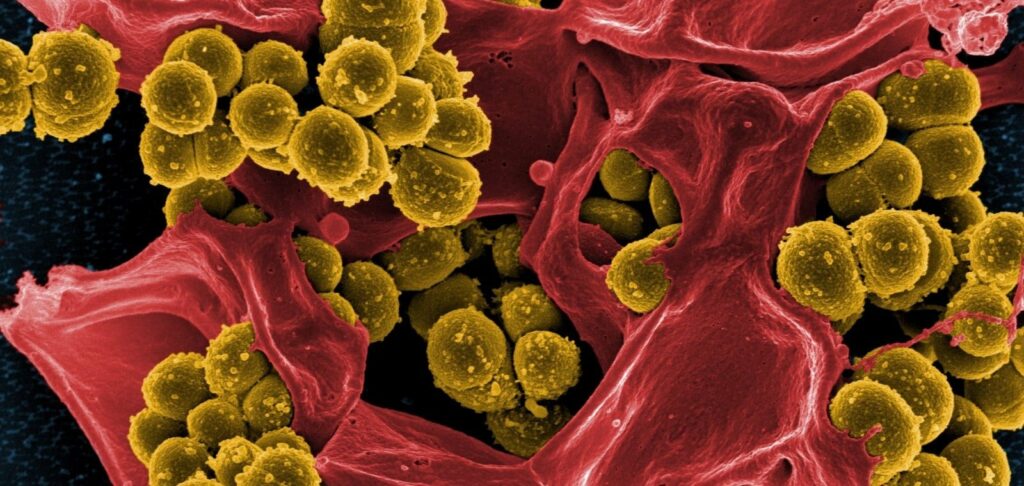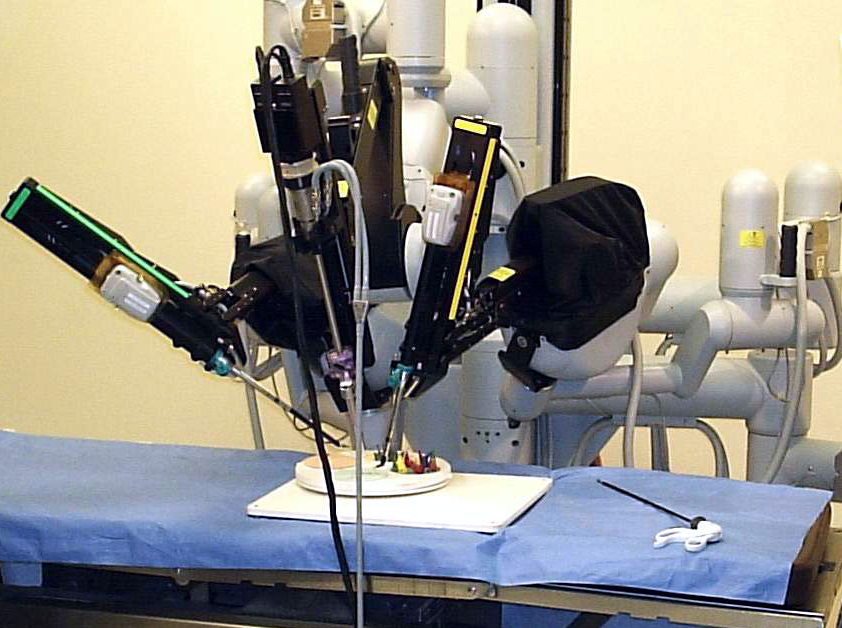

Pandemic, war and economic uncertainty have dramatically increased the level of anxiety disorders and depression in Ukraine.
The demand for “soft” and at the same time science-based solutions is growing: according to Vitafoods Europe 2025 analysts, the mental-wellness category in the global segment of nutraceuticals grew by 18% over the year, and psychobiotics and saffron extract were among the top 5 trends of the exhibition.
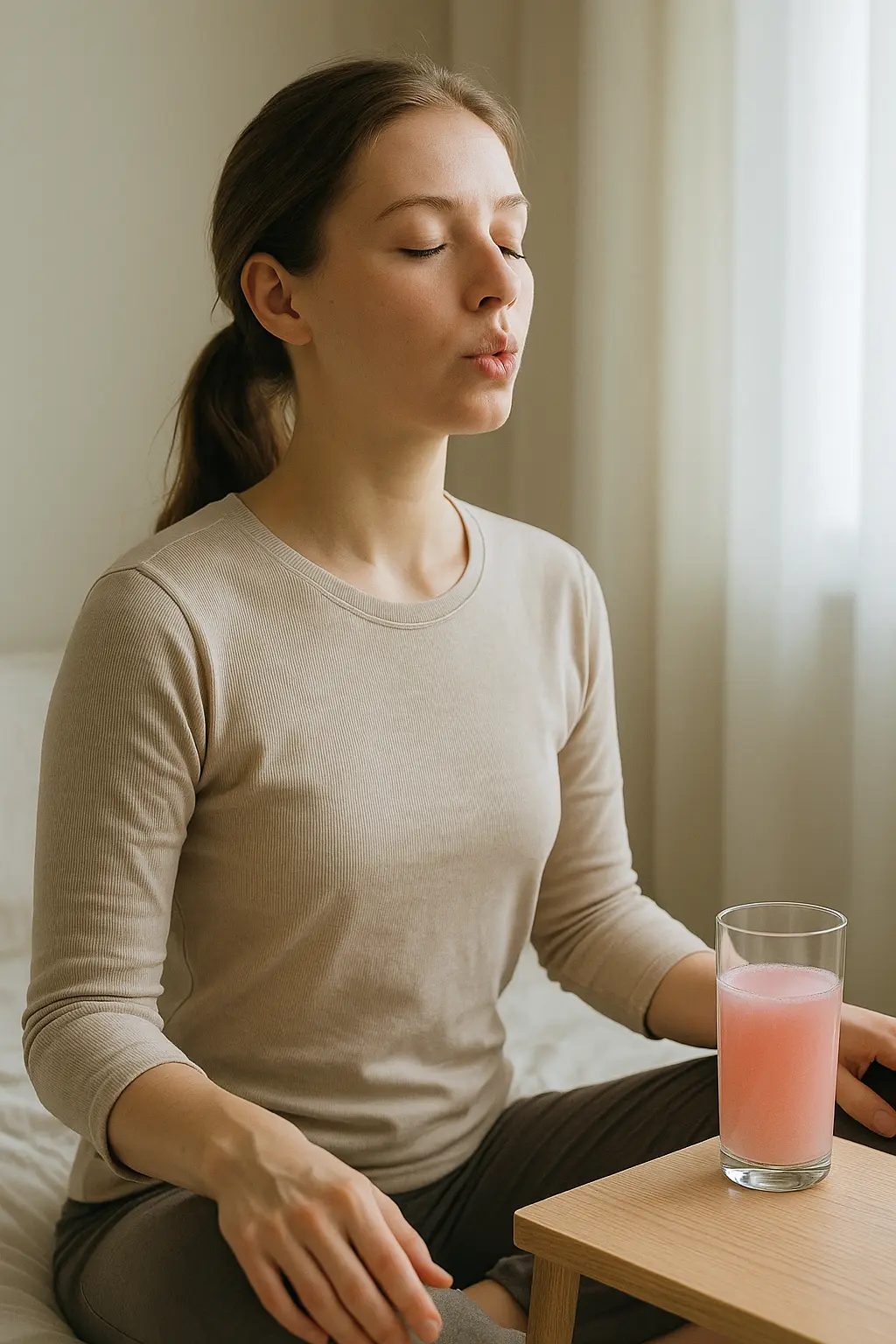
“The gut is the brain”: psychobiotics
The microbiota produces neuroactive substances (GABA, serotonin, SCFA) and regulates the level of cytokines directly affecting mood.
-
Bifidobacterium longum 1714 already improved sleep quality and energy levels in healthy volunteers after four weeks.
-
Vitafoods offers ready-to-use chewable capsules with a combination of B. longum and prebiotic fiber (inulin) – a two-in-one format to strengthen the MGB axis.
Clinical Emphasis
-
Recommended dose: ≥1×10⁹ CFU per day for at least six weeks.
-
It is advisable to use the course after antibiotic therapy or during the season of chronic stress (exams, deadlines, front-line rotations).
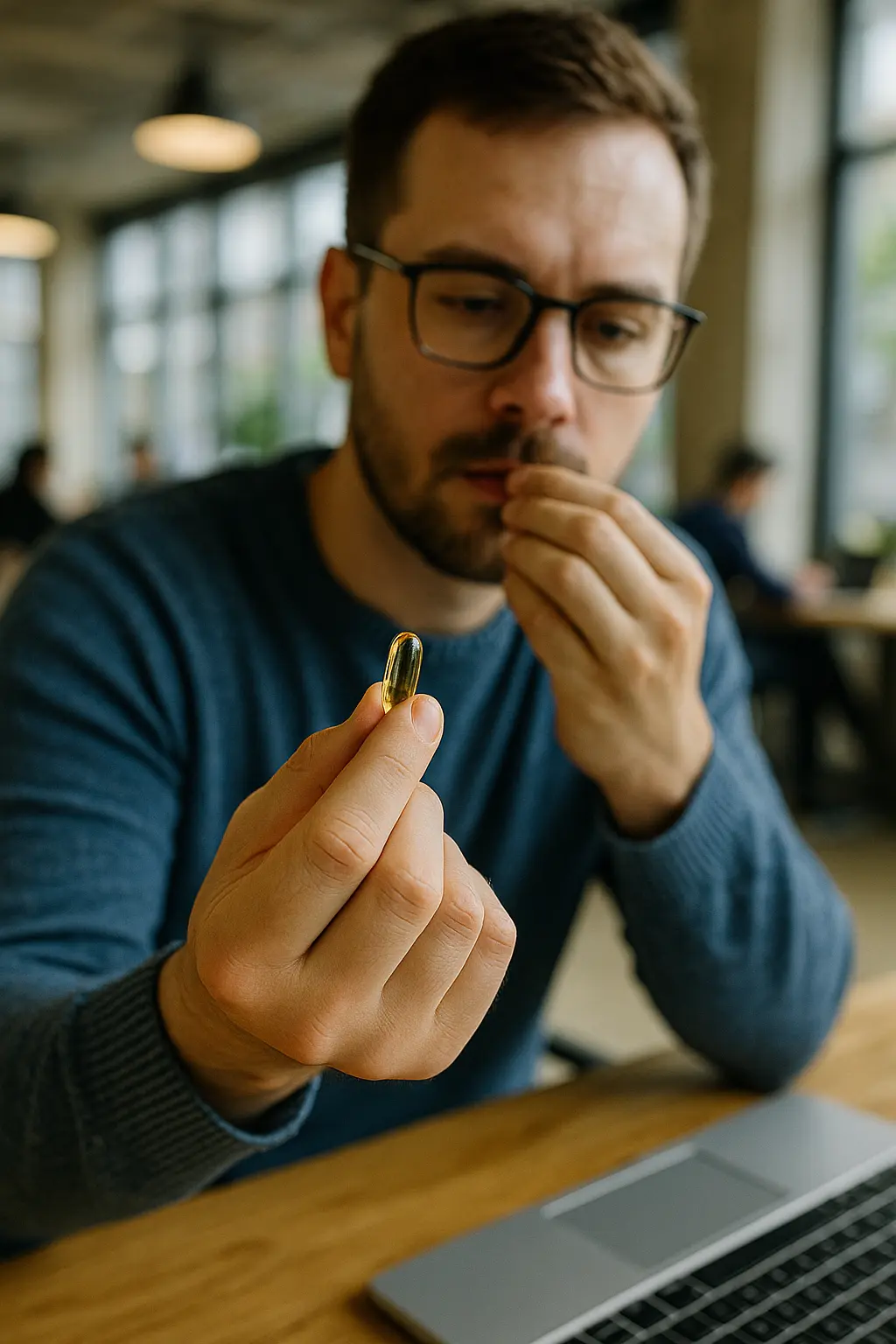
Classic nutraceuticals for brain and mood
Omega-3 PUFAs (EPA + DHA)
In a Massachusetts General Hospital study, a total dose of 4 g improved not only depression but also motivation and cognitive speed in patients with high CRP.
Practice: a minimum of 1 g EPA-enriched formula, 2:1 EPA:DHA ratio is better; liposomal forms available at Vitafoods have increased bioavailability, which is important for teens with dietary restrictions.
B Complex Vitamins
B₆, B₉, and B₁₂ are cofactors in the synthesis of serotonin, dopamine, and GABA. Deficiency of these vitamins is more common in individuals with a restricted meat diet and vegans.
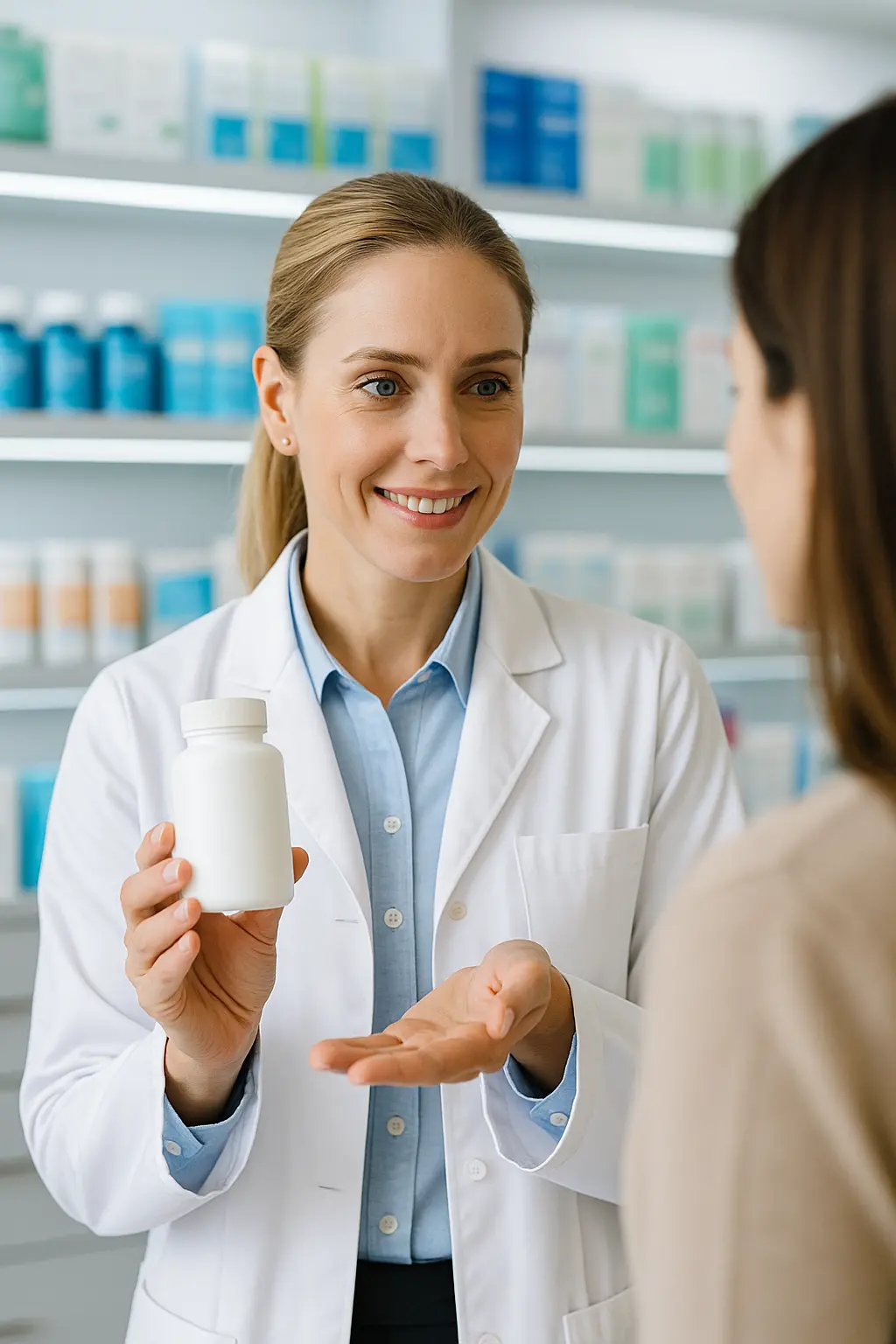
Magnesium
A 2023 meta-analysis confirmed a significant reduction in depressive scores when taking 250-400 mg of magnesium citrate or glycinate for eight weeks. Magnesium regulates NMDA receptors and normalizes the HPA-axis, which is manifested by decreased anxiety and improved sleep.
L-theanine is “calm clarity.”
Green tea amino acid increases the brain’s α-rhythm, promoting relaxation and concentration at the same time. In a 28-day RCT with AlphaWave®-theanine, there was a significant reduction in perceived stress, improved sleep quality, and increased cognitive attention.
Recommendations: 100-200 mg 30-60 min prior to anxiety-provoking situations (public speaking, night duty).
Saffron is a tradition with new evidence
Crocin and safranal modulate the serotoninergic system.
-
A meta-analysis of eight RCTs (517 participants) showed that 30 mg of standardized saffron extract was non-inferior to SSRIs for mild to moderate depression and had a better tolerability profile .
-
A fresh 12-week affron® study recorded significant increases in energy and vitality as early as week six.
Formats 2025.
saffron + theanine instant mango-flavored chewable lozenges are a prime example of fast-acting mood-sticks from Vitafoods.
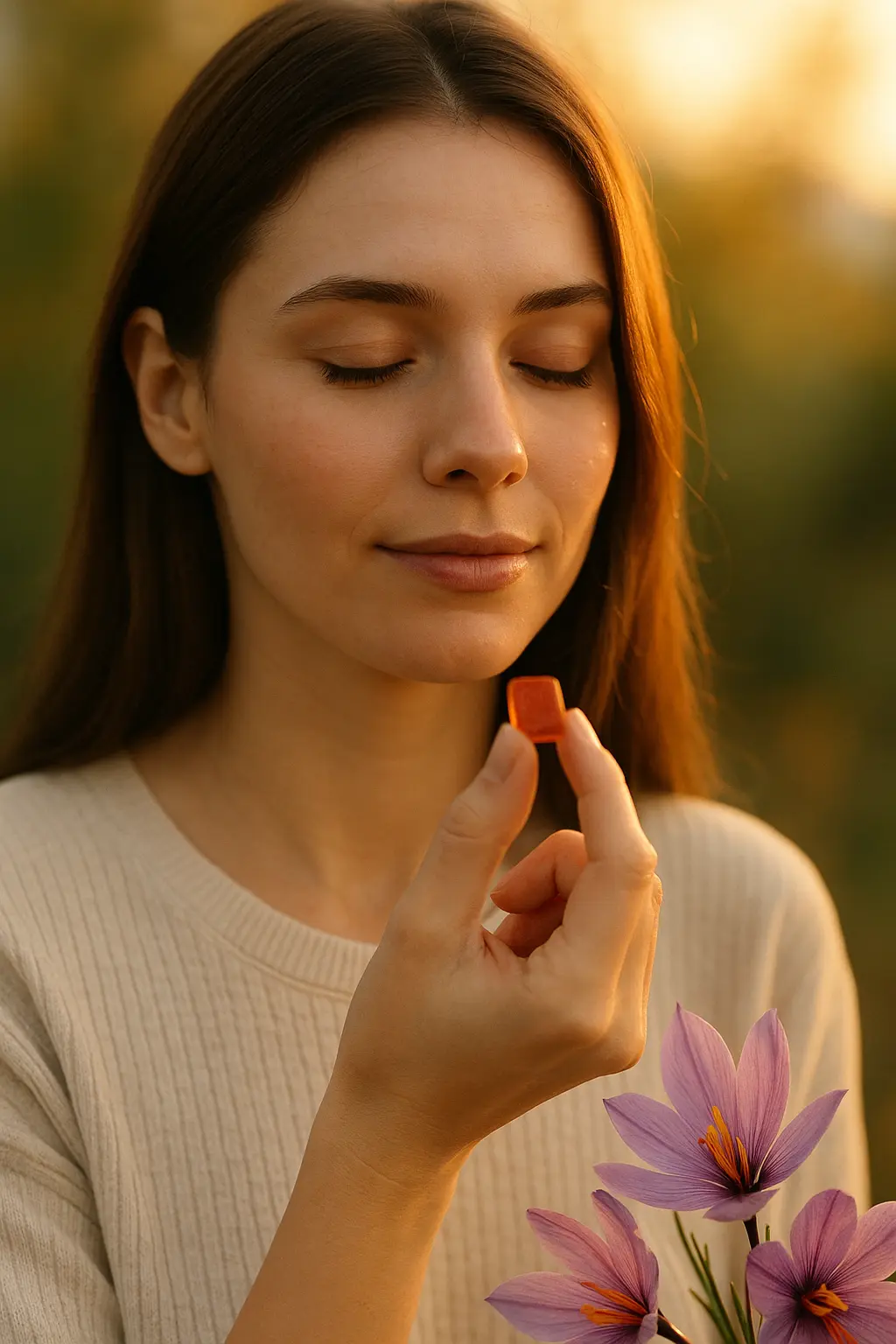
Innovation and personalization with Vitafoods 2025 with Vitafoods 2025
- Psy-GUM™ – sugar-free gum with 50 mg of theanine and adaptogens, the effect is noticeable in 10 min.
- Synbiotic gels with encapsulated B. longum 1714 in a matrix of galacto-oligosaccharides.
-
“Mood ID”-tests for home analysis of the microbiome and selection of personal psychobiotics by subscription.
Table of mechanisms of action and expected effects
| Nutraceuticals | Typical daily dose* | Basic mechanism | Clinical outcome |
|---|---|---|---|
| B. longum 1714 | ≥ 1×10⁹ КУО | ↓ IL-6, ↑ GABA | Better sleep, ↓ anxiety |
| Omega-3 EPA:DHA 2:1 | 1–2 г | ↓ CRP, ↑ BDNF | Less depression, ↑ cognition |
| Magnesium citrate | 250–400 mg | NMDA antagonism | ↓ anxiety, ↑ sleep |
| L-theanine | 100–200 mg | ↑ α-rhythm | Calm concentration |
| Saffron extract | 28–30 mg | ↑ serotonin | Mood normalization |
*For adults without severe somatic diseases.
Key clinical trials in recent years
| Author and year | Design | Participants | Intervention | Result |
|---|---|---|---|---|
| Adams, 2024 | Meta-analysis | 517 | Saffron 30 mg | = SSRIs for efficiency pubmed.ncbi.nlm.nih.gov |
| Wallace, 2023 | RCT, 8 weeks | 163 | B. longum 1714 | ↑ sleep, ↓ stress pubmed.ncbi.nlm.nih.gov |
| Lee, 2024 | RCT, 12 weeks | 268 | EPA + DHA 1.4 г | ↓ depression, ↑ memory mghpsychnews.org |
| Zhang, 2023 | Meta-analysis | 887 | Magnesium 300 mg | Significantly ↓ depression frontiersin.org |
| Rountree, 2023 | RCT, 4 weeks | 98 | Theanine 200 mg | ↓ stress, ↑ attention pubmed.ncbi.nlm.nih.gov |
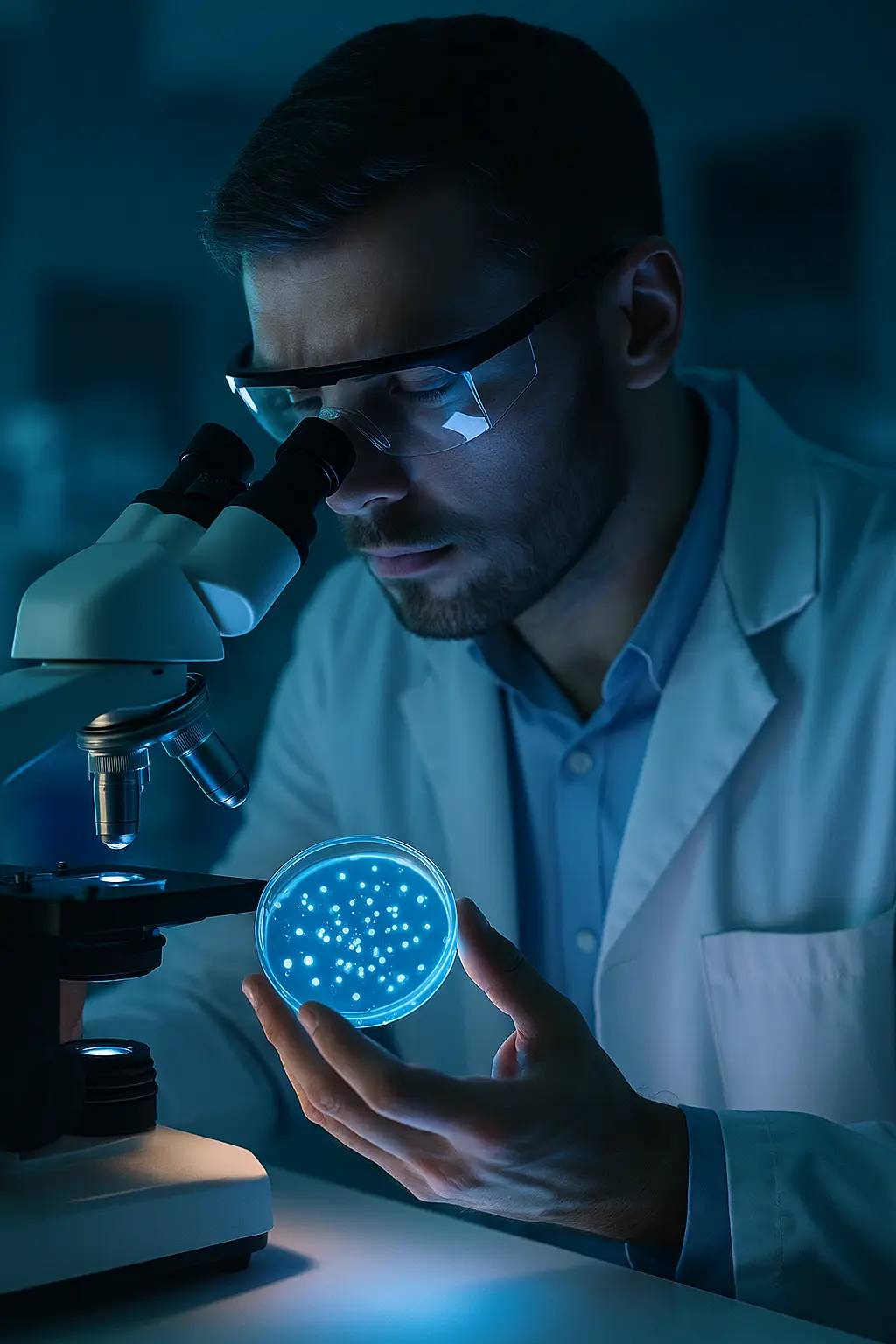
Safety and practical advice for clinicians
-
Dose titration. Start at the lowest dose, increasing if no effect after six weeks.
-
Cross Interactions. Saffron may potentiate the effects of SSRIs; magnesium reduces absorption of tetracyclines – take two hours apart.
-
Certificates of Quality. Look for GMP, ISO 22000, and specified crocin titer (≥2%) or EPA (≥600 mg).
-
Risk Groups. Pregnant women, patients with bipolar disorder, people on anticoagulants – need mandatory medical consultation.
Conclusions
Nutraceuticals are not a replacement for cognitive-behavioral therapy or psychopharmacology, but can enhance clinical effects, improve compliance and quality of life. The key is evidence-based, standardized formulas and a personalized approach, which the current Vitafoods especially emphasized.
List of references
-
Adams S. Effect of Saffron vs. SSRIs on Depression. 2024. PubMed ID 38913392.
-
Wallace C. Bifidobacterium longum 1714 Improves Sleep Quality. 2023. Nature Scientific Reports.
-
Lee H. High-Dose Omega-3 Fatty Acids and Cognition in Depression. 2024. Massachusetts General Hospital.
-
Zhang M. Magnesium Supplementation Beneficially Affects Depression. Frontiers in Psychiatry, 2023.
-
Rountree R. Safety and Efficacy of AlphaWave® L-Theanine. 2023.
-
Nutraceutical Business Review. Vitafoods Europe 2025 Trend Report. 2025.


